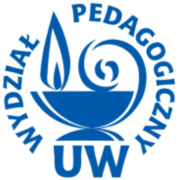JOURNAL POLICY
PUBLICATION ETHICS
The “Education Research Quarterly” operates in accordance with national and international regulations and publishing standards, with a particular focus on ethical behavior and good practices of academic culture.
All manuscripts submitted to the “Education Research Quarterly” are checked for compliance with the ethical standards of publication, as well as for their reliability and scientific value.
Below we present the ethical principles for all parties involved in publishing in the “Education Research Quarterly” (“Kwartalnik Pedagogiczny”). The principles are based on the recommendations of the COPE (the Committee on Publication Ethics) association, which were included in the document The Core Practices: https://publicationethics.org/core-practices
Useful COPE links:
https://publicationethics.org/resources
https://publicationethics.org/files/Code_of_conduct_for_journal_editors_Mar11.pdf
PUBLICATION ETHICS PRINCIPLES
The fair play principle: Articles submitted for publication in the “Education Research Quarterly” are assessed in terms of content, reliability, relevance to the journal’s profile, compliance with ethical standards, and application for science purposes, regardless of the author’s gender, race, sexual orientation, nationality, religion, and political views.
The originality of work principle: Texts sent to the journal must be original and unpublished. Each text is verified by the anti-plagiarism system https://crosscheck.ithenticate.com/en_us/login
The authorship principle: The Editorial Board makes every effort to eliminate any scientific misconduct in the publication process, such as ghostwriting and guest- or gift authorship.
Ghostwriting is when someone has made a significant contribution to the publication, but has not been mentioned as one of the authors, or is not included in the acknowledgments contained in the publication. Therefore, the editorial board asks for information on the co-authors of the research, the results of which are discussed in the article, as well as for the information about every author’s contribution to the research results obtained.
Guest or gift authorship is when one’s participation in the creation of the text was negligible or did not take place at all, and yet the person is named the author or co-author of the publication.
The author or authors may be asked to submit a declaration on the publication’s sources of financing, contribution from research institutions or associations, and other entities (financial disclosure).
Scientific integrity principle: In the case of suspicion of malpractice, e.g. ghostwriting, guest or gift authorship, or plagiarism, the editor takes the following steps: contacts the author for an explanation, gathers documentation, checks the text using an anti-plagiarism program. The editor-in-chief may inform about the situation the author’s superiors and/or persons responsible for research management in the institution in which he or she works.
Principle of counteracting conflicts of interest: It is required to include information about the contribution of individual authors to the creation of the publication, about the sources of financing of the publication, about the contribution of research institutions, associations, and other entities, as well as all relevant information about a conflict of interest that may have influenced the results research or their interpretation.
Withdrawal of the text: Editors may decide to withdraw the published text in the event of:
- the lack of credibility of the research results,
- earlier publication of the work elsewhere,
- committing plagiarism,
- violation of ethical standards.
The author will be informed about the text withdrawal. The information will include the title and author’s name and an explanation of the reasons for the editorial decision. Withdrawn text will not be removed from the journal’s archives and its status will be marked.
OPEN ACCESS POLICY
The articles in “The Pedagogical Quarterly” are published under non-exclusive license granted by the author of copyrights.
Half a year after publication, all articles in “Kwartalnik Pedagogiczny” are shared under the Creative Commons Attribution 3.0 License PL (CC BY). Full text of the license is available here: http://creativecommons.org/licenses/by/3.0/pl/legalcode
The paper edition is the original version of the journal.
PRIVACY POLICY
Your personal data is administered by Uniwersytet Warszawski (The University of Warsaw): ul. Krakowskie Przedmieście 26/28, 00-927 Warszawa.
The data protection officer at Uniwersytet Warszawski (University of Warsaw) supervises the correctness of personal data processing and can be contacted at the e-mail address: iod@adm.uw.edu.pl.
Your personal data will be processed for the purposes: execution of the Agreement which is party to the data subject or to take action on the request of the data subject prior to concluding the Agreement or to fulfill the legitimate objectives pursued by Uniwersytet Warszawski (The University of Warsaw).
The provided data will be processed on the basis of Article 6 p. 1 a or b or f of the Regulation of European Parliament and Council of Europe (EU) no 2016/679 of 24th April 2016.
The provision of personal data is voluntary yet necessary for the achievement of the purposes for which they have been collected.
The personal data will be provided to external entities for legitimate objectives and basing on entrusting agreements and will be made available to entities providing services to Uniwersytet Warszawski (University of Warsaw) such as service and computing system providers, payment and postal operators, courier services, and other subcontractors.
The personal data will be stored during the period necessary for the execution of stipulations of the sales agreement, and the period necessary within the scope of bookkeeping and taxing regulations. If the personal data has been provided based on your consent it can be processed until the withdrawal of the consent. The consent may be withdrawn at any time by sending such request to the e-mail address: wuw@uw.edu.pl
You have the right to access your personal data, as well as, subject to legal provisions, the right to correct and delete data, limiting their processing, transfer them, object to processing, and withdraw the consent at any time.
You have the right to submit the complaint to the President of the Personal Data Protection Office (Polish: Prezes Urzędu Ochrony Danych Osobowych).
Your personal data will not be processed in an automated manner and will not be profiled.
